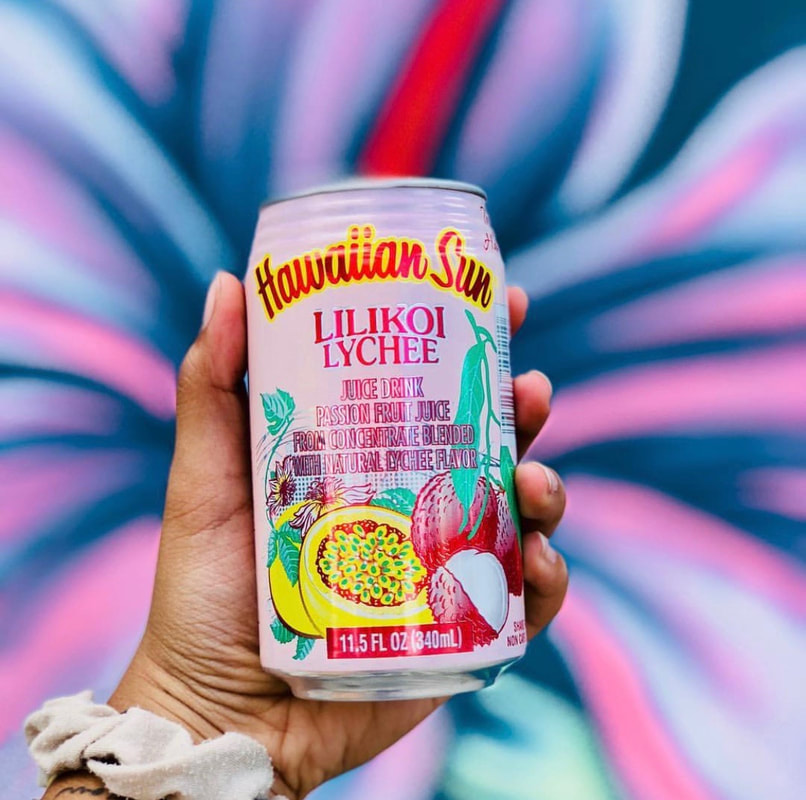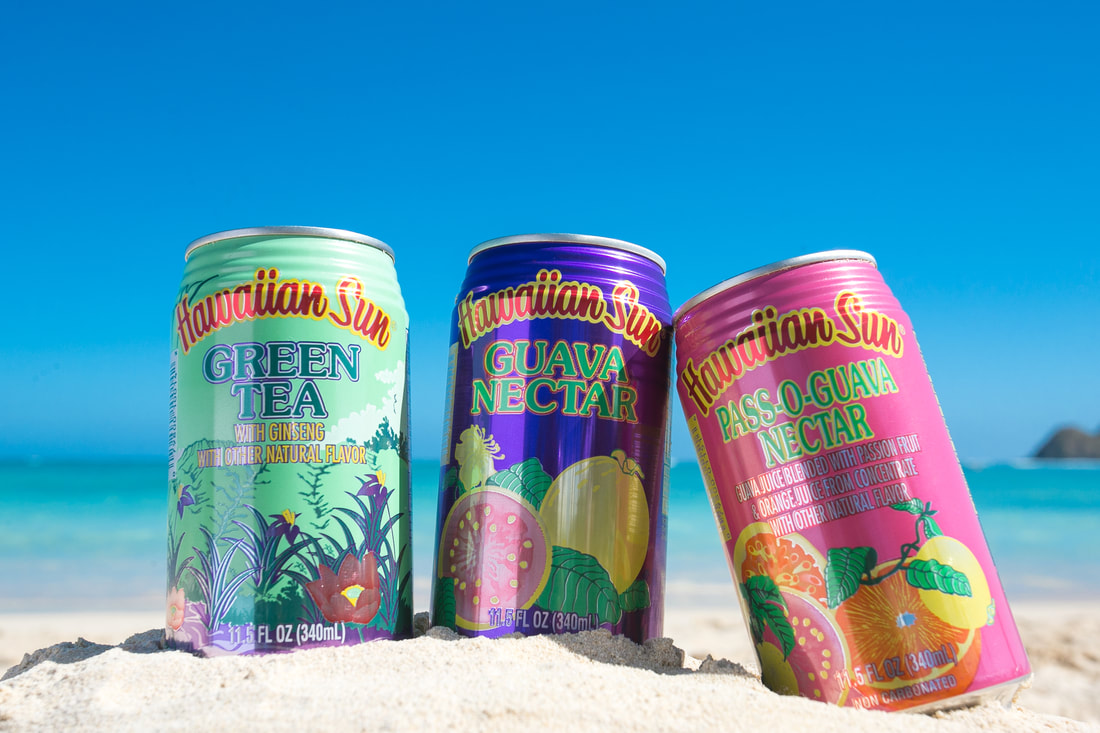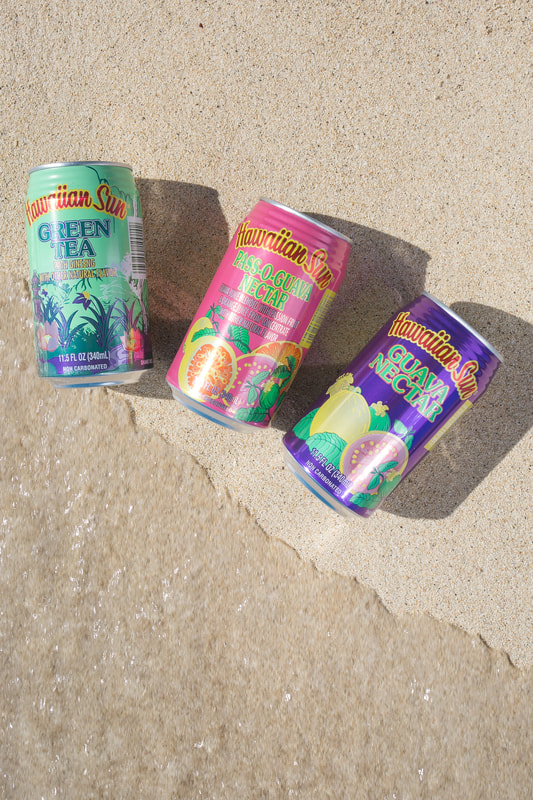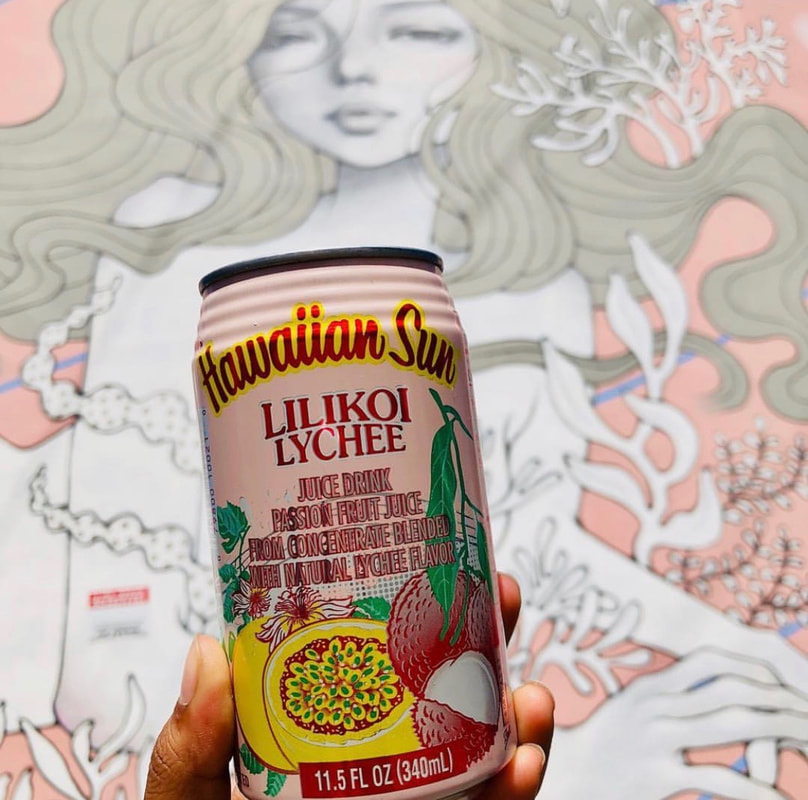An exploration into Hawaii's oldest juice company
The first featured company is part of Hawaii’s modern cultural fabric: Hawaiian Sun. Their juices, including guava, lilikoi, lilikoi-lychee, mango and pass-o-guava, are what remind kama’aina of Hawaii and are what locals who move from the islands crave when they are away.
To learn more about Hawaiian Sun, we met Ed Fernandez at their Kalihi juice facility to learn more about their production operations for their 21 drink flavors, six jelly flavors, luau syrups, five pancake syrups and 100 different boxes of candy that they produce.
The first featured company is part of Hawaii’s modern cultural fabric: Hawaiian Sun. Their juices, including guava, lilikoi, lilikoi-lychee, mango and pass-o-guava, are what remind kama’aina of Hawaii and are what locals who move from the islands crave when they are away.
To learn more about Hawaiian Sun, we met Ed Fernandez at their Kalihi juice facility to learn more about their production operations for their 21 drink flavors, six jelly flavors, luau syrups, five pancake syrups and 100 different boxes of candy that they produce.
About Hawaiian Sun
-
Founding Story
-
Product Approach
<
>
FOUNDING STORY
Hawaiian Sun Products Inc., founded in 1952 by the Kurihara Brothers, originated as a fresh fruit business with a farm in the Wailua/ Kualoa area. In the back half of the decade, they opened a Honolulu facility and started canning juice. Shortly thereafter, they became the first American company to hot pack juice in aluminum cans instead of steel, a parallel to Primo Beer being the first American Brewery to use aluminum cans.
THE PEOPLE
Hawaiian Sun Products is a 4th generation family owned and operated business with an emphasis on team effort. There are members of the team with 30+ years of work experience; it’s a place where multiple family members of different generations have worked to create a high quality and consistent local staple. The team is led by President Brian Tsuruda and Vice President Kent Kurihara.
Hawaiian Sun Products Inc., founded in 1952 by the Kurihara Brothers, originated as a fresh fruit business with a farm in the Wailua/ Kualoa area. In the back half of the decade, they opened a Honolulu facility and started canning juice. Shortly thereafter, they became the first American company to hot pack juice in aluminum cans instead of steel, a parallel to Primo Beer being the first American Brewery to use aluminum cans.
THE PEOPLE
Hawaiian Sun Products is a 4th generation family owned and operated business with an emphasis on team effort. There are members of the team with 30+ years of work experience; it’s a place where multiple family members of different generations have worked to create a high quality and consistent local staple. The team is led by President Brian Tsuruda and Vice President Kent Kurihara.
According to Fernandez, Hawaiian Sun puts taste and quality ingredients at the center of their approach to provide a “great customer experience.” The research and development process is led by the Kurihara family, who collaborates on new flavors and enlists the assistance of flavor houses that they have built multi-generational relationships with. When finalizing product development, the entire family is invited to provide input. Over the past few years, a new flavor has debuted every August at the Made in Hawaii Festival.
Ingredients/Production
-
Ingredients
-
Juice Production
-
Powdered Drink Production
-
Jams and Jellies Production
<
>
Due to the size and scale of Hawaiian Sun, Fernandez is responsible for overseeing FDA requirements, including ingredient labels. His recommendation: Read the nutrition label to understand the ingredients used, including the type of sweetener and the origin of the flavor (whether it comes from a puree, a concentrate or a flavoring). Recently, the company updated all of their cans to meet the latest FDA requirements, which go into effect in 2020. To learn more about the thought process that went into the ingredients selection, we asked Fernandez to guide us through a couple of the key ingredients.
GUAVA
Due to the size and scale of Hawaiian Sun, Fernandez is responsible for overseeing FDA requirements, including ingredient labels. His recommendation: Read the nutrition label to understand the ingredients used, including the type of sweetener and the origin of the flavor (whether it comes from a puree, a concentrate or a flavoring). Recently, the company updated all of their cans to meet the latest FDA requirements, which go into effect in 2020. To learn more about the thought process that went into the ingredients selection, we asked Fernandez to guide us through a couple of the key ingredients.
Big Island Guava is the key ingredient of Hawaiian Sun and their main commodity. It’s sourced by a dedicated team from farms the company has been working with for generations. The guava is then shipped over (via Young Brothers) to Oahu as whole fruit. Once reaching Hawaiian Sun’s juice facility, it’s processed into puree by removing the skin and seeds.
PINEAPPLE
Pineapple is sourced from Dole and typically comes in as a concentrate. As Dole is a multinational business, the primary sources for pineapple juice include: the Philippines, South East Asia, Thailand, and Vietnam. However, Wahiawa-grown pineapple is occasionally used. According to Fernandez, “It’s particularly special when making something like the pineapple-orange drink using Wahiawa pineapple because it tastes different.” This difference, as many of us in Hawaii know, is due to the pineapple’s low acidity, which is found in a few other places around the world.
SUGAR
Sugar is either cane sugar, high fructose corn syrup, or a blend of the two depending on what provides better flavor. Up until two years ago, Maui sugar was used. Since the closing of Maui Sugar Plantation, the company has started sourcing sugar from Central America.
LILIKOI & PAPAYA
Due to their limited availability and high demand, South American papaya and lilikoi are brought in as a concentrate.
C O C O N U T ( C A N N E D C O C O N U T M I L K
& F R O Z E N C O C O N U T
The canned coconut milk and frozen coconut come from Thailand and are private
label, co-packed.
GUAVA
Due to the size and scale of Hawaiian Sun, Fernandez is responsible for overseeing FDA requirements, including ingredient labels. His recommendation: Read the nutrition label to understand the ingredients used, including the type of sweetener and the origin of the flavor (whether it comes from a puree, a concentrate or a flavoring). Recently, the company updated all of their cans to meet the latest FDA requirements, which go into effect in 2020. To learn more about the thought process that went into the ingredients selection, we asked Fernandez to guide us through a couple of the key ingredients.
Big Island Guava is the key ingredient of Hawaiian Sun and their main commodity. It’s sourced by a dedicated team from farms the company has been working with for generations. The guava is then shipped over (via Young Brothers) to Oahu as whole fruit. Once reaching Hawaiian Sun’s juice facility, it’s processed into puree by removing the skin and seeds.
PINEAPPLE
Pineapple is sourced from Dole and typically comes in as a concentrate. As Dole is a multinational business, the primary sources for pineapple juice include: the Philippines, South East Asia, Thailand, and Vietnam. However, Wahiawa-grown pineapple is occasionally used. According to Fernandez, “It’s particularly special when making something like the pineapple-orange drink using Wahiawa pineapple because it tastes different.” This difference, as many of us in Hawaii know, is due to the pineapple’s low acidity, which is found in a few other places around the world.
SUGAR
Sugar is either cane sugar, high fructose corn syrup, or a blend of the two depending on what provides better flavor. Up until two years ago, Maui sugar was used. Since the closing of Maui Sugar Plantation, the company has started sourcing sugar from Central America.
LILIKOI & PAPAYA
Due to their limited availability and high demand, South American papaya and lilikoi are brought in as a concentrate.
C O C O N U T ( C A N N E D C O C O N U T M I L K
& F R O Z E N C O C O N U T
The canned coconut milk and frozen coconut come from Thailand and are private
label, co-packed.
HAWAIIAN SUN JUICE
From the time the product first starts production to the time it’s in the stores, the
turnover can be 24 hours.
Product Consistency
As agricultural goods often change in taste, (based upon time of year, growing season,
as well as the origin of the product) consistency is key. To achieve this, when
Hawaiian Sun’s “formulators” are creating a batch, they check for consistency in
taste, brix, and ingredient specs and adjust accordingly. The first test is before
pasteurization, which allows the recipe to be altered. The batch is then rechecked
after pasteurization because pasteurization will slightly modify flavors.
Powdered Drinks
Hawaiian Sun’s powdered drinks are made by a co-packer and do not use the same
ingredients as the canned juice. Because of this, getting the flavor of the powdered
drink to match the flavor of its canned counterpart was the biggest challenge
during the development process. The powdered drinks were created because there
was a large demand for a version of the Hawaiian Sun products that could be sent
as omiyage; shipping cans of liquid to the mainland is particularly expensive.
From the time the product first starts production to the time it’s in the stores, the
turnover can be 24 hours.
- Purchase fruit or juice
- Process fruit into a puree (if applicable)
- Combine ingredients (according to recipe) in large, several hundred gallon tanks
- Blend
- Cook to 180 degrees (pasteurization)
- Fill cans via filler
- Cap cans with steamer
- Bring to room temperature with water cooling bath
- Stack cans onto pallets that are loaded onto a flatbed truck headed to Sand Island for storage.
Product Consistency
As agricultural goods often change in taste, (based upon time of year, growing season,
as well as the origin of the product) consistency is key. To achieve this, when
Hawaiian Sun’s “formulators” are creating a batch, they check for consistency in
taste, brix, and ingredient specs and adjust accordingly. The first test is before
pasteurization, which allows the recipe to be altered. The batch is then rechecked
after pasteurization because pasteurization will slightly modify flavors.
Powdered Drinks
Hawaiian Sun’s powdered drinks are made by a co-packer and do not use the same
ingredients as the canned juice. Because of this, getting the flavor of the powdered
drink to match the flavor of its canned counterpart was the biggest challenge
during the development process. The powdered drinks were created because there
was a large demand for a version of the Hawaiian Sun products that could be sent
as omiyage; shipping cans of liquid to the mainland is particularly expensive.
Powdered Drinks
Hawaiian Sun’s powdered drinks are made by a co-packer and do not use the same
ingredients as the canned juice. Because of this, getting the flavor of the powdered
drink to match the flavor of its canned counterpart was the biggest challenge
during the development process. The powdered drinks were created because there
was a large demand for a version of the Hawaiian Sun products that could be sent
as omiyage; shipping cans of liquid to the mainland is particularly expensive.
Hawaiian Sun’s powdered drinks are made by a co-packer and do not use the same
ingredients as the canned juice. Because of this, getting the flavor of the powdered
drink to match the flavor of its canned counterpart was the biggest challenge
during the development process. The powdered drinks were created because there
was a large demand for a version of the Hawaiian Sun products that could be sent
as omiyage; shipping cans of liquid to the mainland is particularly expensive.
JAMS & JELLIES
Hawaiian Sun Jams and Jellies are made with no preservatives, along with similar
ingredients as their juice counterparts. The difference between the jam and jelly is
that the jelly is made from the puree, or juice liquid, and the jam is made from the
solids. For example, the Guava jelly is made with strained Guava Juice, while the
Guava Jam is made from puree.
Hawaiian Sun Jams and Jellies are made with no preservatives, along with similar
ingredients as their juice counterparts. The difference between the jam and jelly is
that the jelly is made from the puree, or juice liquid, and the jam is made from the
solids. For example, the Guava jelly is made with strained Guava Juice, while the
Guava Jam is made from puree.
Usage in Cocktails
-
Hawaii Bev Guide Commentary
-
Cocktail Recommendations
-
Jams & Jellies
<
>
Hawaiian Sun, as we mentioned, is a cultural institution in Hawaii. However, it has a universal appeal as the flavors are somewhat unique in a beverage, yet common enough not to be considered unusual. We see that Hawaiian Sun could expand (even in Hawaii) behind the bar. This is because cocktails have become significantly more culinary in approach. On top of that, tropical juice flavors are trending, and the product provides familiar, yet interesting, flavors that are easily integratable into “tropical” feeling drinks. Plus, the price works out very well. At a retail price of $4.00, you’re at $.66 per 3 oz; there are 8 oz per can in which you’ll probably only use 3 to 4 oz of. This means that your PC is $0.33 for a cocktail that can easily fetch $8.00+ or in a tourist market of $12+. Yet, in Hawaii, (and even in mainland markets such as Los Angeles and Las Vegas) Hawaiian Sun products would also work well as they provide unique tropical flavors that you don’t have to make yourself.
TECHNIQUE
FLAVOR APPROACH
Hawaiian Sun flavors are part of the terroir of Hawaii because of their light, tropical flavors. Cocktails playing to this concept are the easiest.
GUAVA NECTAR
LILIKOI PASSION
LILIKOI LYCHEE
STRAWBERRY GUAVA
PASS-O-GUAVA
STRAWBERRY LILIKOI
MANGO ORANGE
PINEAPPLE ORANGE
PASSION ORANGE
- Shaken with ice
- Blended drinks
- Mimosas
FLAVOR APPROACH
Hawaiian Sun flavors are part of the terroir of Hawaii because of their light, tropical flavors. Cocktails playing to this concept are the easiest.
- Brighten with fresh citrus, as they are tropical fruit
- Use with soda water, as many are robust in flavor and can be toned down slightly while still providing full flavor
- Allow the juices to lend themselves to additional aromatics like bitters and fresh herbs including: mint, basil, rosemary, and thyme. Skip the additional sugar, as they are already sweetened.
GUAVA NECTAR
- Base Spirits: Okolehao, Rum, Vodka, Tequila, Mezcal, Gin
- Accent Ingredients: Mint, Basil, Hibiscus Tea, Angostura Bitters, Orange Bitters, Cardamon, Cinnamon.
LILIKOI PASSION
- Base Spirits: Okolehao, Rum, Vodka, Tequila, Mezcal, Gin, Champagne
- Accent Ingredients: Coconut, Giffords Banana, Cilantro, Ginger Beer, Shiso.
LILIKOI LYCHEE
- Base Spirits: Okolehao, Rum, Vodka, Tequila, Mezcal, Gin, Japanese Whiskey/ Old Pali Road Whiskey, Sparkling Sake
- •Accent Ingredients: Basil, Tarragon, Tangerine, Honeydew Melon, Ginger Beer, Pineapple.
STRAWBERRY GUAVA
- Base Spirits: Okolehao, Rum, Vodka, Tequila, Mezcal, Gin, St Germain, Grand Marnier.
- Accent Ingredients: Mint, Basil, Angostura Bitters, Orange Bitters, Cardamon, Cinnamon.
PASS-O-GUAVA
- Base Spirits: Okolehao, Rum, Vodka, Tequila, Mezcal, Gin, Giffords Banana.
- Accent Ingredients: Mint, Basil, Angostura Bitters, Orange Bitters, Cardamon, Cinnamon.
STRAWBERRY LILIKOI
- Base Spirits: Okolehao, Rum, Gin, Vodka, Tequila.
- Accent Ingredients: Mint, Basil, Angostura Bitters, Orange Bitters, Cardamon, Cinnamon.
MANGO ORANGE
- Base Spirit: Okolehao, Rum, Spiced Rum, Tequila, Mezcal, Kapena Li Hing Mui Tequila.
- Accent Ingredients: Mint, Basil, Cilantro, Chili Pepper simple syrup, Li Hing Mui.
PINEAPPLE ORANGE
- Base Spirit: Okolehao, Rum, Spiced Rum, Tequila, Mezcal, Kapena Li Hing Mui Tequila.
- Accent Ingredients: Mint, Basil, Cilantro, Chili Pepper simple syrup, Li Hing Mui.
PASSION ORANGE
- Base Spirits: Okolehao, Rum, Vodka, Tequila, Gin
- Accent Ingredients: Basil, Tarragon, Tangerine, Honeydew Melon, Ginger Beer, Pineapple, Lavender Bitters
- Sample Flavor Combo: Gin(light) + Lavender Bitters
SUGGESTIONS FOR JAMS & JELLIES
Hawaiian Sun jams and jellies are another way to incorporate sugar and fruit elements into a cocktail without having to use the juice.
Hawaiian Sun jams and jellies are another way to incorporate sugar and fruit elements into a cocktail without having to use the juice.
Product Ordering & Distributors
-
Ordering Hawaiian Sun
-
Hawaii Distributors
<
>
Hawaiian Sun Products can be directly ordered through the company, but they do have minimums. If small quantities are needed, there is a national network of distributors which can be found at: https://www.hawaiiansunproducts.com/wholesale. The product retails for approximately $4.99 per six-pack in California.





 RSS Feed
RSS Feed